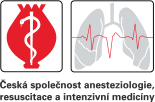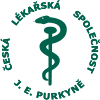Anest. intenziv. Med. 2016;27(3):187-190
Úloha simulační medicíny v rozvoji anestezie a intenzivní medicínyPostgraduální vzdělávání
- Klinika anesteziologie a resuscitace 3. LF UK a FNKV, Praha
Jak se mohou kliničtí lékaři dobře naučit léčbu komplikovaných zdravotních stavů pacientů, aniž by je vystavili nepřiměřenému riziku? Jak můžeme posoudit schopnosti lékařů i celých týmů, když každý pacient i lékař je jiný, stavů je mnoho a ještě více jejich kombinací? Podobné otázky vedly v posledních letech k rozvoji simulační medicíny. Inspirace pro vznik tohoto odvětví medicíny přišla z leteckého průmyslu, vojenství a kosmonautiky. Cílem simulací je rozvoj hlavně netechnických dovedností (např. komunikace) jednotlivců i celého týmu. Jedinečná možnost bezpečné (simulátor neumře) sebereflexe je příležitostí ke zlepšení dovedností každého z nás.
Klíčová slova: simulační medicína; CRM; debriefing
The role of simulation in the evolution of anaesthesia and intensive care medicine
How can clinicians master the treatment of complicated medical conditions without exposing patients to risk? How can we assess the ability of physicians and teams when each patient and doctor is different, when there are many conditions and yet more combinations? These and similar issues have led to the development of medical simulation. The inspiration for the creation of this part of medicine has come from the airline, military and aerospace industry. The aim of simulation is the development of non-technical skills (e.g. communication) of individuals and the team. A unique opportunity for self-reflection (the simulator does not die) is an opportunity to improve the skills of each of us.
Keywords: medical simulation; CRM; debriefing
Zveřejněno: 1. červen 2016 Zobrazit citaci
Reference
- Reason, J. Human error: models and management. Western J. Med., 2000, 172, p. 393-396.
 Přejít k původnímu zdroji...
Přejít k původnímu zdroji...  Přejít na PubMed...
Přejít na PubMed... - Linda, T., Kohn, J., Corrigan, M. and Committee on Quality of Health Care in America. To Err Is Human: Building a Safer Health System, 1999.
- Dieckmann, P. Simulation is more than technology - The simulation setting. 2009.
- Gaba, D. M. Human error in anesthetic mishaps. Int. Anesthesiol. Clin., 1989, 27, p. 137-147.
 Přejít k původnímu zdroji...
Přejít k původnímu zdroji...  Přejít na PubMed...
Přejít na PubMed... - Gaba, D. M., Howard, S. K., Fish, K. J. Simulation-based training in anesthesia crisis resource management (ACRM): a decade of experience. Simulat Gaming, 2001, 32, p. 175-193.
 Přejít k původnímu zdroji...
Přejít k původnímu zdroji...





